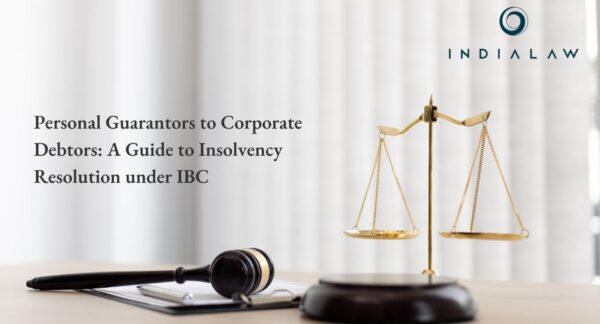Cancellation of Registration: Certain Jurisdictional Questions


The Supreme Court of India in a recent judgement considered the power of registering authorities under the Registration Act 1908 (“Registration Act”) to cancel a deed already by registered by it.
Facts in Brief–
- The case was pertaining to a housing plot allotted to the Appellant’s mother by a housing society (the “Society”), vide a registered deed.
- After her death, the Society through its Office Bearer executed a Deed of Extinguishment unilaterally, cancelling the said allotment of plot because of violation of the Bye-laws of the Society in not raising any construction on the plot so allotted within time.
- On the basis of the said Extinguishment Deed, the Society executed and got registered a deed in favour of one of the Respondent in respect of the same plot. The Appellant objected to the said transaction.
- However, a compromise deed was executed between the Society and the Respondent on the one hand and the Appellant on the other hand – where the Appellant received consideration of Rs.6.50 Lacs.
- Notwithstanding the compromise deed, the Appellant filed a dispute under Section 64 of the Madhya Pradesh Cooperative Societies Act, 1960 (the “Societies Act”), before the Deputy Registrar, Cooperative Societies. The Appellant challenged the Society’s action of unilaterally registering the Extinguishment Deed and allotting the plot to the Respondent; and prayed for a declaration that he continues to be the owner of the plot allotted by the Society to his mother, having inherited the same. In the said dispute, the Appellant filed interim applications praying for restraint order and for appointment of a Receiver.
- During the pendency of the said dispute, the Society permitted transfer of the plot in favour of other Respondents vide registered Deeds.
- During the pendency of the above dispute, the Appellant also moved an application before the Sub-Registrar (Registration) calling upon him to cancel the registration of Extinguishment Deed and the subsequent two deeds pursuant to which the Respondents acquired the plot. The Sub-Registrar (Registration) by a speaking order rejected the said application mainly on two counts. Firstly, a dispute was pending between the parties with regard to the same subject matter. Secondly, he had no jurisdiction to cancel the registration of a registered document in question. For, his jurisdiction was limited to registration of the document when presented by the executants before him for that purpose.
- The Appellant then approached the Inspector General (Registration) by way of an application under Section 69 of the Registration Act. The Inspector General (Registration) rejected the said application on the ground that powers conferred on him were limited to the general superintendence of the Registration Offices and making Rules.
- The Appellant thereafter approached the High Court of Madhya Pradesh, Judicature at Jabalpur, by way of Writ Petition to challenge the order passed by the Inspector General (Registration) as also the order passed by the Sub-Registrar (Registration). The Appellant further prayed for a declaration that the Extinguishment Deed as well as the subsequent two deeds were void ab initio with a further direction to the Inspector General (Registration) and the Sub-Registrar (Registration) to record the cancellation of those documents.
- This Writ Petition was dismissed by the Division Bench of the High Court primarily on the ground that the Appellant had already resorted to a remedy before the appropriate Forum under the Societies Act, which was pending.
- The Appellant filed an appeal before the Supreme Court against this order.
Observations/Conclusions/Analysis of the Hon’ble Supreme Court.
The Hon’ble Supreme Court while dismissing the appeal made following opinion:-
- The Sub-Registrar was not expected to decide the title or rights of the parties to the agreement nor was expected to examine the document to ascertain whether the same was legal and permissible in law or undertake an analytical analysis.
- If the document registered by the Sub-Registrar is illegal or there occurs any irregularity, that must be challenged by invoking an appropriate proceeding before a Court of competent jurisdiction.
- The decision of the Society to cancel the allotment of a plot to its member or to rescind his/her membership and to allot the plot to another member is the business of the Society. Any cause of action in that behalf, can be pursued before the Competent Forum by the aggrieved member or his legal representative.
- In the present case, the subject Extinguishment Deed was presented by the person duly authorized by the Society and was registered by the Registering Officer. Once the document is registered, it is not open to the Registering Authority under the Registration Act to cancel the registration. The remedy of appeal provided under the Registration Act is limited to the inaction or refusal by the Registering Officer to register a document and not for cancellation of registration. The power conferred on the Registrar by virtue of Section 68 to supervise and control Sub-Registrar cannot be invoked to cancel the registration of documents already registered.
- The Registering Officer is not required to undertake a quasi judicial enquiry regarding the veracity of the factual position stated in the document presented for registration or its legality, if the tenor of the document suggests that it requires to be registered.




